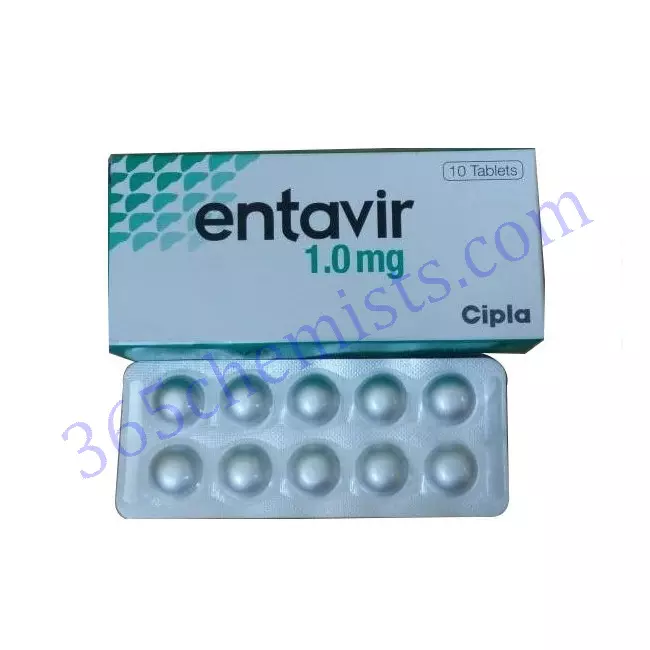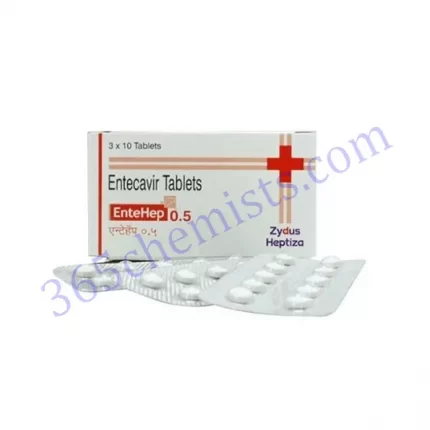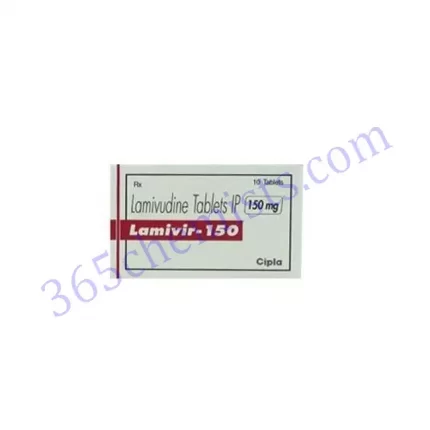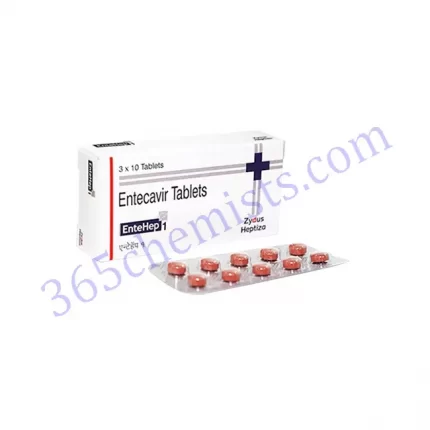Entavir 1mg Tablet: Effective Treatment for Chronic Hepatitis B with Entecavir
A persistent infection with the hepatitis B virus (HBV) can be treated effectively with the medication known as Entavir 1mg Tablet. The active component of this medication is called entecavir, and it is an antiviral medication that is classified as a nucleoside analogue reverse transcriptase inhibitor. Patients who suffer from chronic hepatitis B are often given the Entavir 1 mg Tablet to take in order to inhibit the replication of HBV, lessen the amount of liver damage, and enhance their liver function.
Understanding Entecavir
Entecavir is a powerful antiviral agent that was developed with the express purpose of inhibiting the reproduction of the hepatitis B virus. It accomplishes this by inhibiting the activity of the reverse transcriptase enzyme, which is required for the viral replication process. By inhibiting the activity of this enzyme, Entecavir prevents viral RNA from being converted into viral DNA, which in turn inhibits viral replication and reduces the amount of viral load present in the body.
Indications and Usage
Entavir 1 mg Tablet is indicated for the treatment of chronic hepatitis B in adults and children over the age of two who have evidence of active viral replication and either evidence of persistent elevations in serum aminotransferases (ALT or AST) or histologically active disease. This treatment is also indicated for the treatment of chronic hepatitis C in adults and children over the age of two who have evidence of active viral replication. When taken as directed, it can help suppress the virus that causes hepatitis B and slow down the progression of liver disease. However, it does not cure the condition.
Dosage and Administration
The recommended amount of time to wait between doses of Entavir 1 mg Tablet can change depending on the patient’s age, liver function, and previous medical treatment. It is essential to take the medication at the prescribed intervals and complete the treatment for the full amount of time that was suggested. Oral consumption of the tablet is required, either with or without food. It is strongly advised that the tablet be taken in its entirety, without crushing or chewing it.
Precautions and Warnings
Before beginning treatment with Entavir 1 mg Tablet, it is essential to provide the attending medical professional with details regarding any preexisting medical conditions, allergies, or medications that are currently being taken. In some patients, particularly those who already have kidney issues, entecavir may cause a decrease in kidney function or lactic acidosis. This is especially likely to occur in patients who have a history of kidney problems. It is essential to maintain regular monitoring of kidney function and to adhere to the dosage that has been prescribed in order to reduce the potential for adverse effects.
Related Product
Entavir 0.5mg Tablet
Entavir 1mg Tablet
Adverse Effects
Side effects are possible with the use of any medication, including the Entavir 1mg Tablet. Headaches, fatigue, dizziness, nausea, and diarrhoea are examples of common adverse effects that may occur. These adverse reactions are typically not severe and disappear on their own as the body becomes accustomed to the medication being taken. Extremely rare instances may result in severe adverse effects, such as damage to the liver or allergic reactions. If any symptoms that are out of the ordinary or continue for an extended period of time, it is imperative to seek medical attention.
Drug Interactions
There is a possibility of adverse interactions between the Entavir 1mg Tablet and other medications, including those available without a prescription, herbal supplements, and vitamins. It is imperative that the patient disclose all medications being taken to the healthcare professional in order to prevent any potentially harmful interactions. There is a possibility that the effects of other medications, such as HIV antiretroviral drugs or nephrotoxic agents, could be altered or the risk of adverse effects could be increased if entecavir is taken at the same time. The healthcare provider will evaluate the potential for interactions between the medications and then make any necessary adjustments to the treatment plan.
Conclusion
In the treatment of chronic hepatitis B, the medication available in the form of the Entavir 1 mg Tablet is extremely helpful. It is an effective antiviral drug that contains entecavir, which helps to suppress viral replication and improve liver function. Entavir 1mg Tablet, when used as part of a comprehensive treatment plan for hepatitis B, plays an important role in minimising the amount of damage done to the liver and halting the progression of the disease. During treatment, it is essential to ensure that the prescribed dosage is adhered to, that all precautions and warnings are taken seriously, and that regular contact is maintained with a qualified medical professional. In the event that you have any concerns or questions, please do not be reluctant to speak with a healthcare professional for additional direction.











